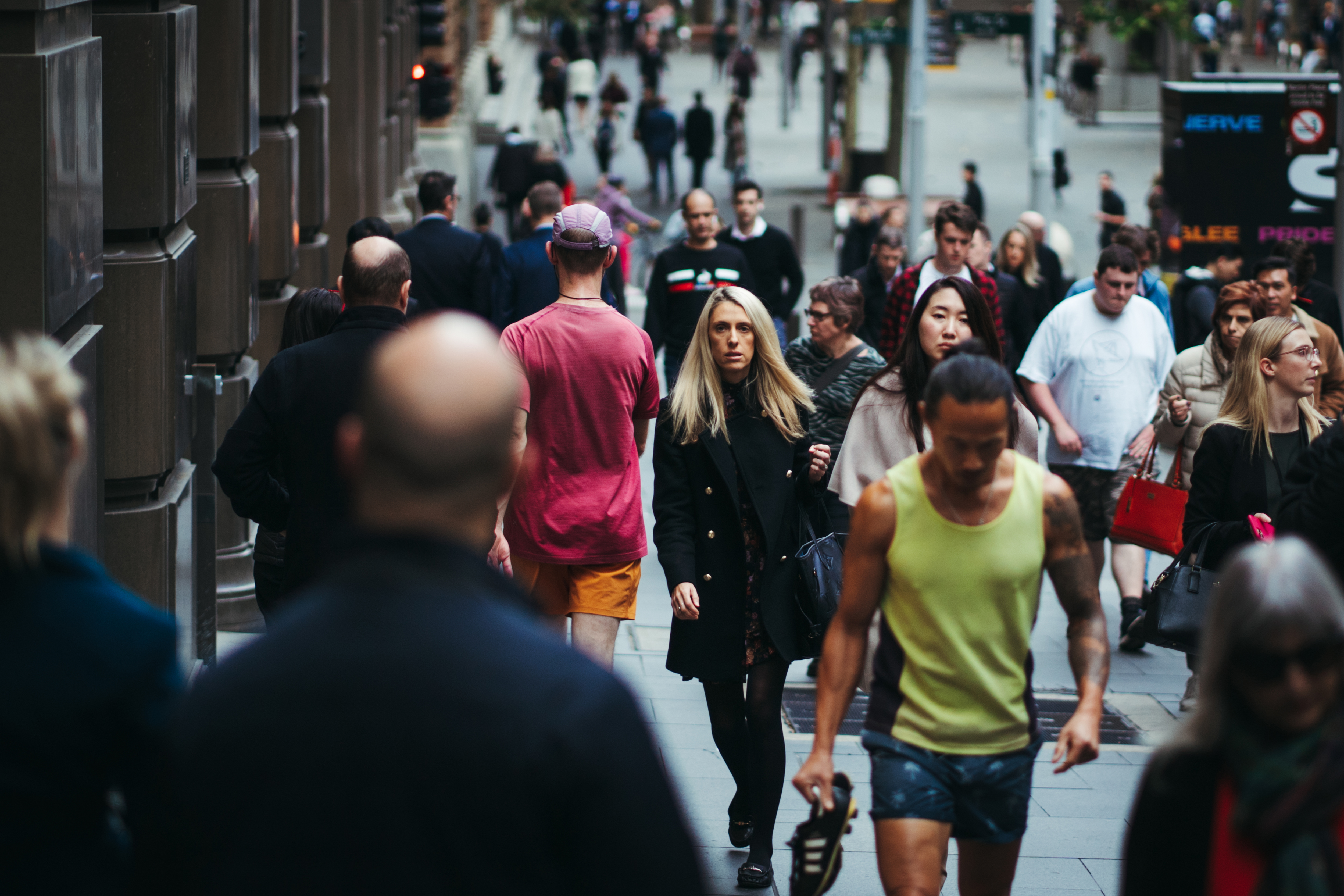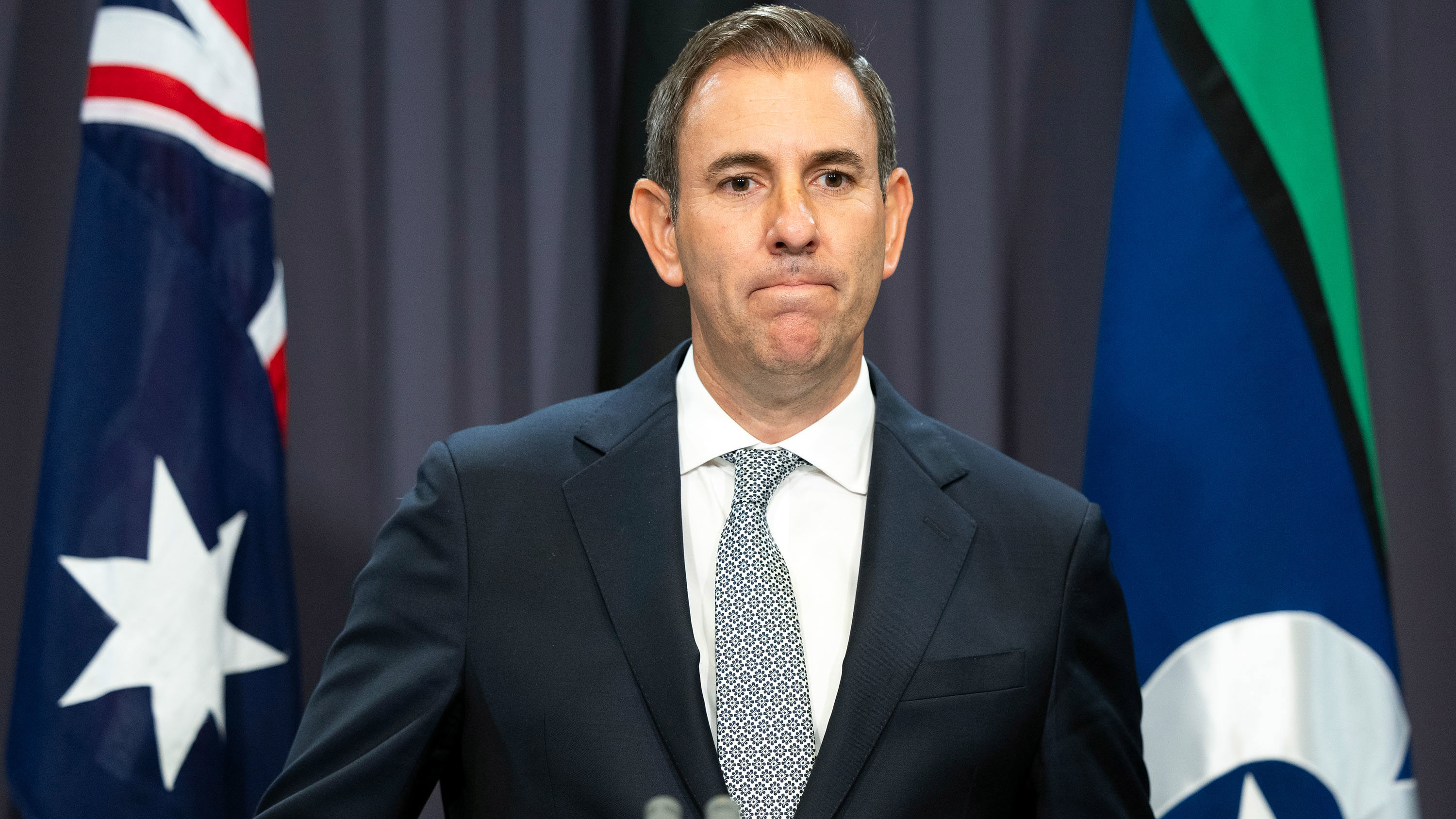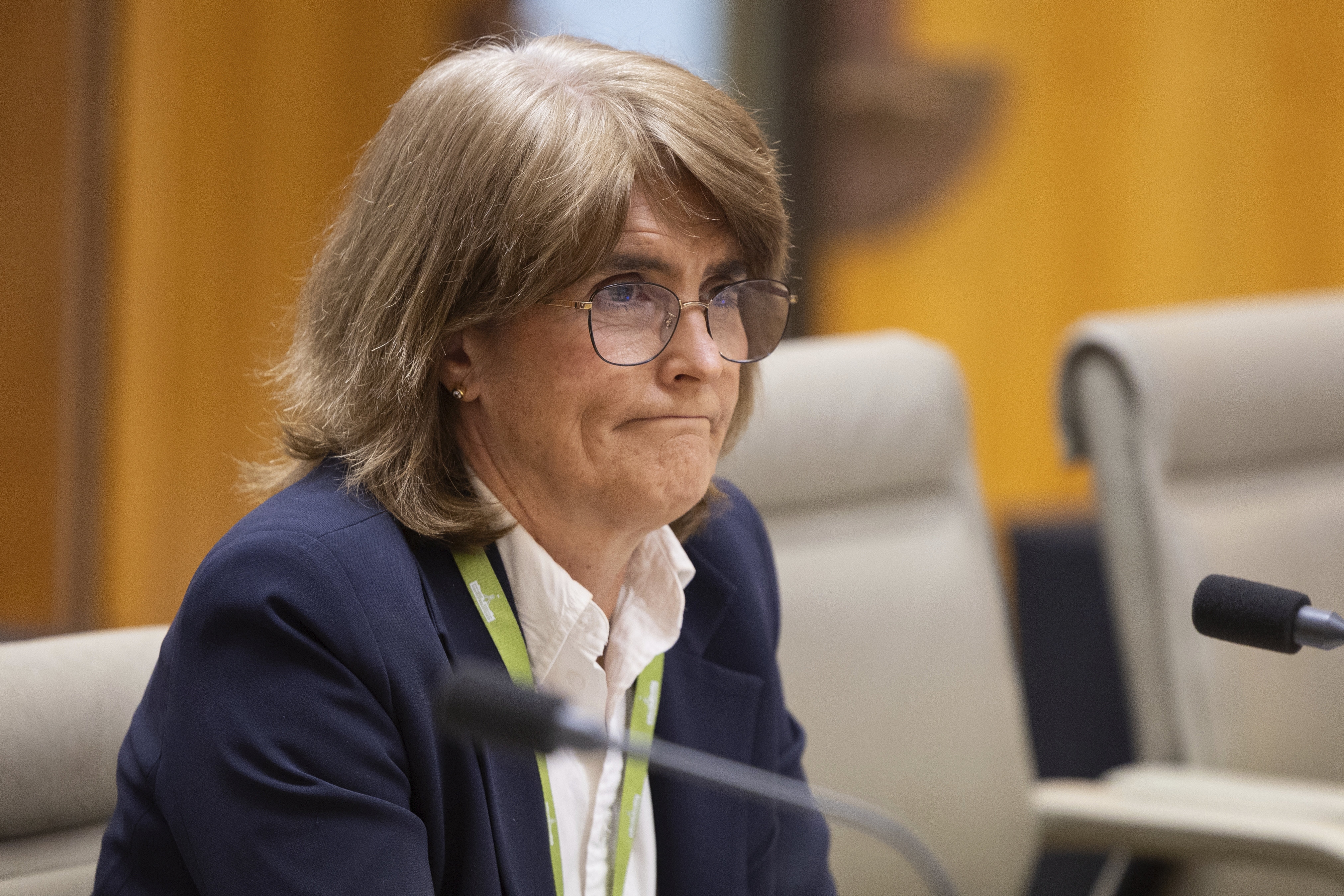Australia's economy is on the verge of crawling to a standstill, with gross domestic product rising by just 0.1 per cent in the first three months of the year.
New national accounts data from the Australian Bureau of Statistics confirmed the weak growth – the lowest quarterly figures since September 2021, when the economy went backwards.
"GDP growth was weak in March, with the economy experiencing its lowest through-the-year growth since December 2020," ABS head of national accounts Katherine Keenan said.
READ MORE: Australian TV and radio star John Blackman dies aged 76
"GDP per capita fell for the fifth consecutive quarter, falling 0.4 per cent in March and 1.3 per cent through the year."
Treasurer Jim Chalmers said the weak figures were a result of high interest rates, but that even the small growth justified the government's economic approach.
"Over the past year, around three-quarters of OECD economies have recorded a negative quarter while Australia has avoided one to date," he said.
"Against this difficult global backdrop, Australia recorded faster annual growth than most major advanced economies – faster than Canada, Italy, the United Kingdom, Japan and Germany.
"Since the election, Australia has also recorded faster employment growth than any major advanced economy."
READ MORE: Price of orange juice to climb as global industry faces crisis
In a clear sign Australians are doing it tough, households saved an average of just 0.9 per cent of their income during the March quarter – down from 1.6 per cent in December – even though wages grew.
It means savings have stayed at under 2 per cent for an entire year for the first time since March 2008, during the Global Financial Crisis.
"People are under pressure and we see that in the savings ratio and in other indicators as well," Chalmers said.
READ MORE: Revelations of mass NDIS rorts 'incredibly alarming', admits minister
Economists had been expecting either very weak or no growth, with Reserve Bank Governor Michele Bullock telling Senate estimates earlier today she didn't expect GDP to increase.
"I would say that we are in a position where the economy is very weak," she said.
"We've got… people cutting back on discretionary expenditure, but we've still got the labour market growing, and that's a very important point to remember – that the unemployment rate is rising gradually but employment is still growing."
READ MORE: Qantas boss admits 'we let our customers down' over cancelled flights
Canstar finance expert Steve Mickenbacker said today's figures, while potentially bringing interest rate cuts closer, have made Bullock's job more difficult.
"The March quarter GDP growth rate has made the already tough job for the Reserve Bank even trickier, potentially setting the economy on the path to recession," he said.
"The Reserve Bank's narrow runway has become skinnier, with March quarter CPI growth rising to 1.4 per cent and GDP growth falling to 0.01 per cent.
"The Reserve Bank will be treading a delicate tightrope between avoiding recession and keeping the credit card genie contained.
"It's early to call, but an economy in recession and with high inflation awakens memories of 1970s stagflation that put central bankers between a rock and a hard place, either tolerating higher inflation or triggering job losses.
"It took the world a long time to recover way back then.
"Impending tax cuts and the minimum pay rate decision could throw a lifeline to the economy and haul it back to healthier growth, but will at the same time add to inflationary pressures."






